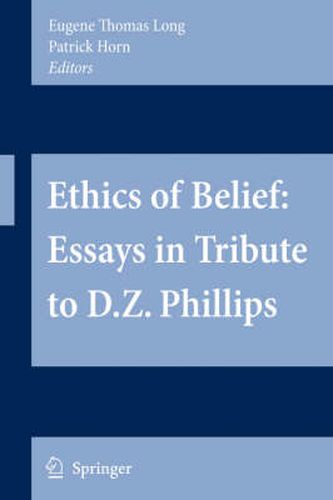Readings Newsletter
Become a Readings Member to make your shopping experience even easier.
Sign in or sign up for free!
You’re not far away from qualifying for FREE standard shipping within Australia
You’ve qualified for FREE standard shipping within Australia
The cart is loading…






This title is printed to order. This book may have been self-published. If so, we cannot guarantee the quality of the content. In the main most books will have gone through the editing process however some may not. We therefore suggest that you be aware of this before ordering this book. If in doubt check either the author or publisher’s details as we are unable to accept any returns unless they are faulty. Please contact us if you have any questions.
Eugene Thomas Long Originally published in the International Journal for Philosophy of Religion, Volume 63, Nos 1-3. DOI: 10. 1007/s11153-007-9155-4 © Springer Science+Business Media B. V. 2007 This volume is presented as a tribute to the life and work of D. Z. Phillips. Six of the articles were originally presented at the annual conference on the philosophy of religion organized by Phillips and held at Claremont Graduate University, February 9-10, 2007. Unfortunately, Phillipsdidnotlivetoparticipateintheconferenceitself. HediedunexpectedlyJuly25,2006 in the library of his beloved University of Wales, Swansea. Previously published volumes of essays,basedonconferencesorganizedbyPhillipsinClaremont,includedachapterentitled, Voices in Discussion, in which Phillips provided his own reactions to the discussions wr- ten almost immediately after the conference. Sadly, this volume appears without the addition of his voice. Born in Morriston, near Swansea, Phillips was a Welsh speaker, a strong supporter of Welsh speaking schools and the author of many works in philosophy and literature in Welsh and English. Known widely as the leading representative of the movement in the philo- phy of religion called Wittgensteinianism, Phillips spent much of his effort challenging the tendency of philosophers to elevate one kind of discourse to the point where it becomes the norm by which other forms of discourse are to be judged.
$9.00 standard shipping within Australia
FREE standard shipping within Australia for orders over $100.00
Express & International shipping calculated at checkout
This title is printed to order. This book may have been self-published. If so, we cannot guarantee the quality of the content. In the main most books will have gone through the editing process however some may not. We therefore suggest that you be aware of this before ordering this book. If in doubt check either the author or publisher’s details as we are unable to accept any returns unless they are faulty. Please contact us if you have any questions.
Eugene Thomas Long Originally published in the International Journal for Philosophy of Religion, Volume 63, Nos 1-3. DOI: 10. 1007/s11153-007-9155-4 © Springer Science+Business Media B. V. 2007 This volume is presented as a tribute to the life and work of D. Z. Phillips. Six of the articles were originally presented at the annual conference on the philosophy of religion organized by Phillips and held at Claremont Graduate University, February 9-10, 2007. Unfortunately, Phillipsdidnotlivetoparticipateintheconferenceitself. HediedunexpectedlyJuly25,2006 in the library of his beloved University of Wales, Swansea. Previously published volumes of essays,basedonconferencesorganizedbyPhillipsinClaremont,includedachapterentitled, Voices in Discussion, in which Phillips provided his own reactions to the discussions wr- ten almost immediately after the conference. Sadly, this volume appears without the addition of his voice. Born in Morriston, near Swansea, Phillips was a Welsh speaker, a strong supporter of Welsh speaking schools and the author of many works in philosophy and literature in Welsh and English. Known widely as the leading representative of the movement in the philo- phy of religion called Wittgensteinianism, Phillips spent much of his effort challenging the tendency of philosophers to elevate one kind of discourse to the point where it becomes the norm by which other forms of discourse are to be judged.